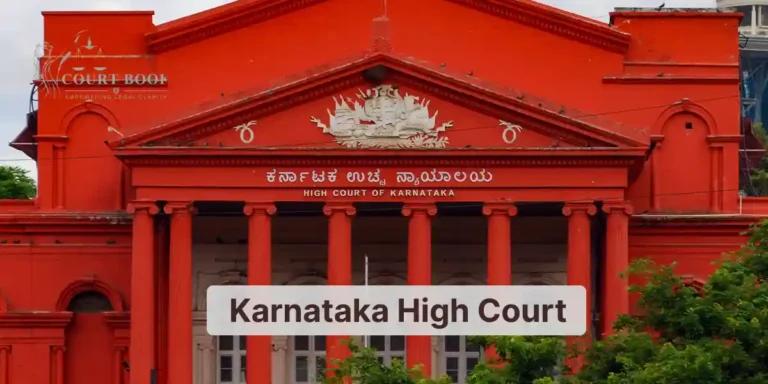The Karnataka High Court is currently hearing an appeal by the Enforcement Directorate (ED) against an order that quashed the summons issued to Dr. Natesha DB, former Commissioner of Mysore Urban Development Authority (MUDA). The ED contends that this order has effectively stalled its investigation into the alleged illegal land allotment to Chief Minister Siddaramaiah’s wife, Parvathi.
The single-judge bench had previously ruled in favor of Dr. Natesha DB, declaring the search and seizure operations conducted at his residence under Section 17(1)(f) of the Prevention of Money Laundering Act (PMLA) to be invalid and illegal. Additionally, the summons issued to him under Section 50 of the Act was also quashed.
"The Enforcement Directorate cannot bypass the procedural fairness outlined in the PMLA. The right to liberty and privacy of individuals cannot be infringed upon without due process," the single-judge bench emphasized in its order.
Following this, the ED filed an appeal before a division bench comprising Chief Justice N V Anjaria and Justice KV Aravind, seeking an interim stay on the single judge’s order. Alternatively, the ED requested the court to clarify that the order cannot serve as a precedent in similar cases.
ED’s Arguments Before the High Court
During the hearing, Additional Solicitor General (ASG) S V Raju, representing the ED, referred to Section 17 of PMLA and highlighted the distinction between ‘reason to believe’ and ‘reason to suspect.’
"Suspicion is sufficient to issue summons if an initial opinion is formed based on reason to believe. However, the impugned order declaring the search as illegal may set a precedent, allowing other accused to seek bail," Raju argued.
The ED also raised concerns that a coordinate bench had previously quashed summons to other individuals, including CM’s wife Parvathy. "This order may benefit other accused and impact future proceedings," Raju stated.
Addressing the court’s query on whether the order applies to the accused alone or has broader implications, Raju clarified:
"The single judge’s ruling is binding across the state. If the order remains, we cannot rely on Section 50 statements to oppose bail for other accused individuals, contradicting Supreme Court judgments."
Read also:- Karnataka High Court Reserves Order on Plea to Ban Proton Mail in India, Calls for Central Government Action
Impact on the Investigation
The ED further argued that the order has significantly hindered its probe into the case. "With the summons quashed, our ability to investigate is severely restricted. The main accused, Parvathy, cannot be questioned. Our hands are tied," Raju submitted.
He pointed out that since a predicate offense has already been registered, the investigation must continue as per the law. "Once a predicate offense exists, it is inevitable that proceeds of crime or relevant records will be found," he added.
Defense’s Counterarguments
Senior Advocate Dushyant Dave, representing Dr. Natesha DB, defended the single judge’s ruling, asserting that it aligns with legal precedents set by the Supreme Court. He argued that the decision was both legally and factually justified.
"Referring to other judgments where this order is being followed is misleading, as those orders were not challenged. The present judgment follows established legal principles and benefits all accused in similar situations," Dave contended.
Additionally, the defense informed the court that the Lokayukta Police had filed a 'B summary' report in the case, and a competent court would deliver its ruling on April 3. Moreover, the de-notification and compensation process was conducted under a statutory scheme, and the allegedly illegal plots were returned by Parvathy to the government.
"Can the process of de-notification and site allotment under a government resolution be classified as a criminal act?" the defense questioned.
Next Steps
The Karnataka High Court will continue hearing the matter on March 27. The outcome of this appeal could have significant implications for ongoing and future investigations under PMLA.















